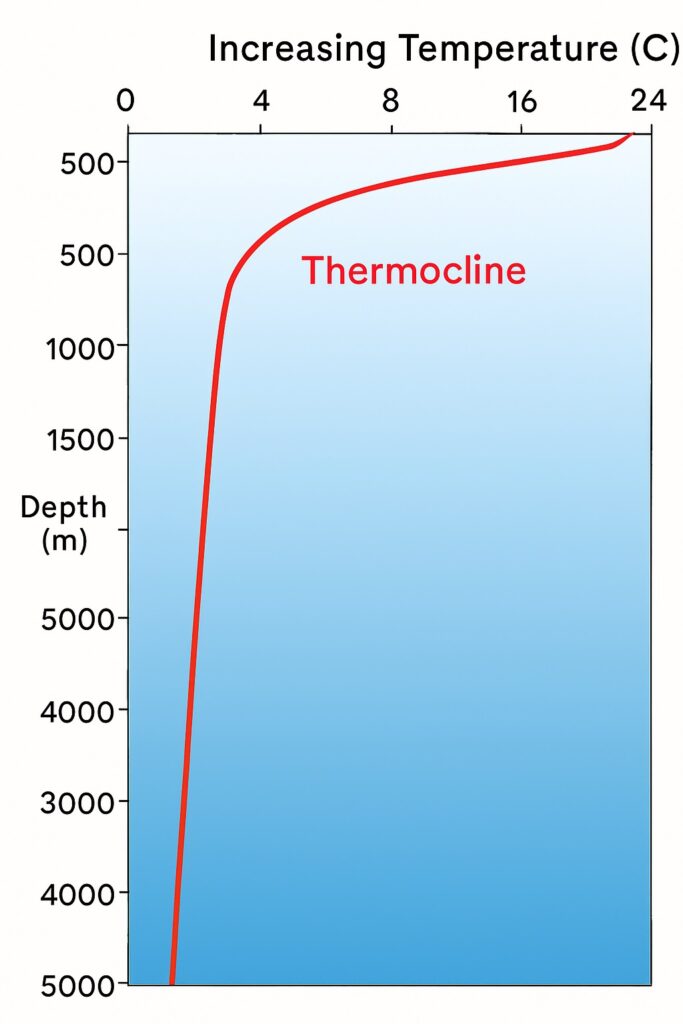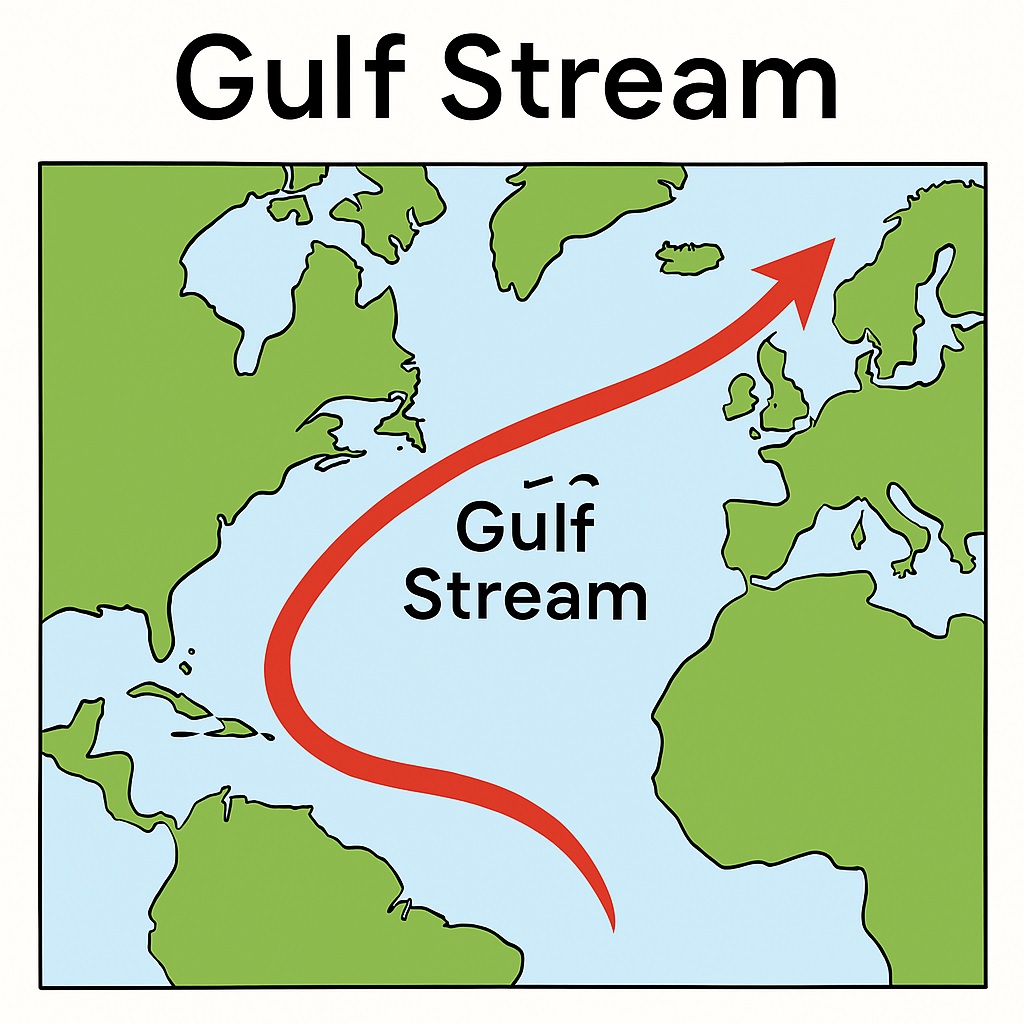The temperature of the oceans is a fundamental characteristic of marine environments, influencing marine life, weather patterns, and global climate. Oceans play a critical role in regulating the Earth’s climate, absorbing, storing and releasing vast amounts of heat and energy from the sun. The temperature of oceans varies depending on a variety of factors, including latitude, depth, and ocean currents. In this article, we will take a closer look at the temperature of the oceans and how it varies in different regions of the world.

Table of Contents
Variation by Latitude
One of the most significant factors that affects ocean temperature is latitude. Closer to the equator, where the sun’s energy is more intense, the oceans are warmer, while at higher latitudes, the oceans are cooler. This latitudinal variation in ocean temperature plays a crucial role in driving the Earth’s climate system, influencing atmospheric circulation, precipitation patterns, and ocean currents.

In the tropics, near the equator, the water temperature is warm year-round, typically ranging from 25-30°C. This warm water is a significant source of energy for the atmosphere, fueling the development of hurricanes and other tropical storms. In contrast, at higher latitudes, the water temperature is cooler, with temperatures ranging from 10-15°C in the subtropics and dropping to near freezing at the poles.
Variation by Depth
In addition to latitude, the temperature of the oceans also varies by depth. At the surface, the water temperature is influenced by the sun, wind, and air temperature, while at deeper levels, the temperature is determined by the transfer of heat from the surface and by the release of heat from the Earth’s interior.

At depths of a few hundred meters, the temperature of the ocean begins to drop, reaching its lowest point at the abyssal plain. This deep, cold water is known as Antarctic Bottom Water and is one of the densest and most significant ocean currents on Earth, playing a critical role in global ocean circulation.
Variation Temperature of Oceans due to Ocean Currents
Ocean currents also play a significant role in determining the temperature of the oceans. Surface currents are driven by winds, while deep currents are driven by differences in water density. The movement of water from one region of the ocean to another can have a significant effect on water temperature, with warm currents carrying warm water to cooler regions and cold currents carrying cold water to warmer regions.
One of the most well-known ocean currents is the Gulf Stream, which carries warm water from the Gulf of Mexico to the Atlantic Ocean. This current helps to moderate the climate along the east coast of North America and Europe, making it warmer than regions at the same latitude with comparable climates.

Impact of Temperature of Oceans on Marine Life
Ocean temperature plays a critical role in the distribution and behavior of marine life, including fish, marine mammals, and other organisms. Many species are adapted to specific temperature ranges, and changes in water temperature can cause shifts in the distribution of species and changes in their behavior.
Impact on Human Life
The variation in ocean temperature can also have significant impacts on human life. Changes in ocean temperature can affect weather patterns and contribute to the formation of hurricanes and other natural disasters. In addition, ocean temperature can play a role in the formation and distribution of harmful algal blooms, which can contaminate seafood and harm human health.
Conclusion
In conclusion, the temperature of the oceans varies depending on a variety of factors, including latitude, depth, and ocean currents. This variation plays a critical role in the Earth’s climate system, affecting the distribution and behavior of marine life, as well as contributing to weather patterns and natural disasters. As we continue to study and understand the temperature of the oceans, we can better appreciate the critical role they play in shaping our planet and our lives.
Read: Geography Notes